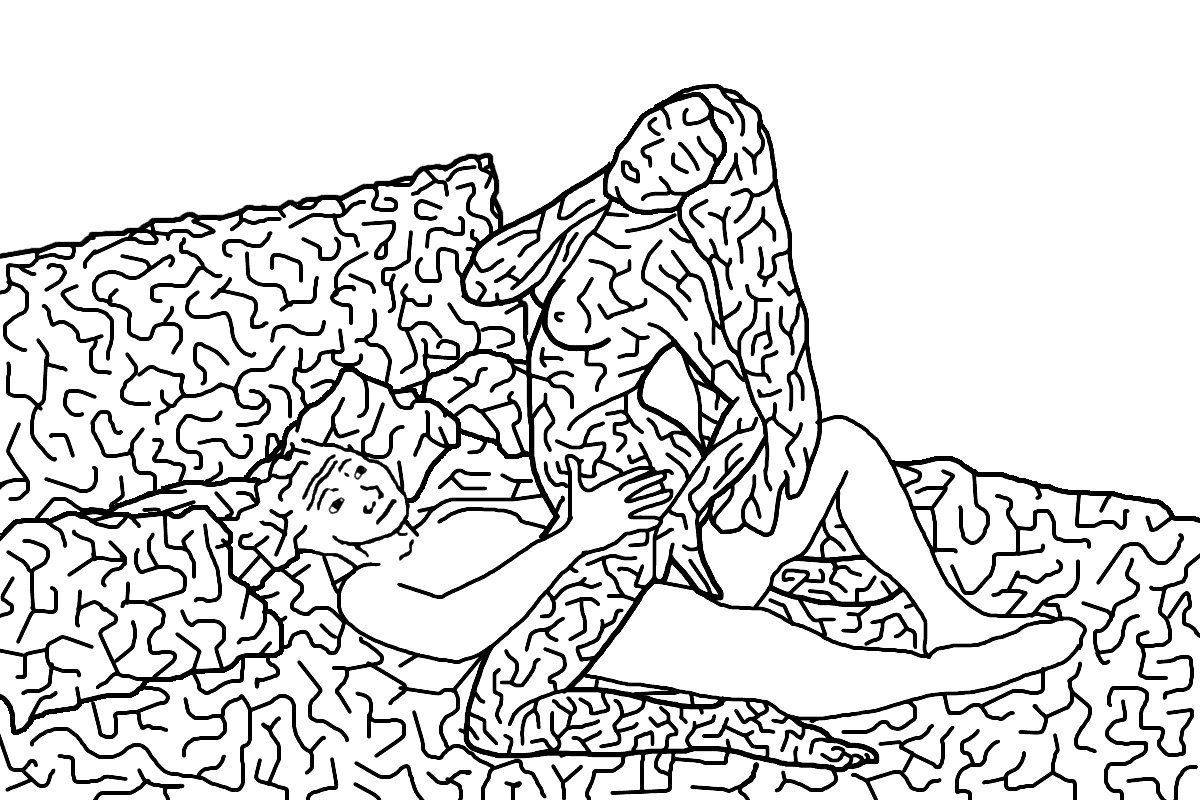Some notes for studying spells for wizardry:
Spell formula literacy is itself a skill (fractured comprehension). It lets you figure out what a spell might be by studying how it was written, how it dances on the page, and how it reacts when you play with it. Useful because you might not actually want to fully comprehend what you're looking at.
You can never be absolutely certain what a spell is without learning the spell.
You do not have to actually comprehend a spell to cast it. (Spellbooks are useful BECAUSE you don't really need to learn them. Helps offset the psychosis).
To absorb a spell, you must spend time with a spellbook and make an effort to fully comprehend the nature of it. This goes beyond recitation and reading, it is an understanding of the being that composes the spell
For practical use: every full day you spend studying and looking at it, roll an int check to see if you comprehend the spell. Every additional day of studying adds a +1. Other things can probably boost this; demon conversation skills for example probably also increases this roll by +4. Average DC is 30, modified by how zesty the spell's personality is.
After absorbing a spell, you will need to wait (Spell DC)-(int+spellreading) days to absorb another spell or risk spell psychosis. This type of spell psychosis is usually believed to be temporary and related to the number of days the wizard should have been recovering, but then again there have been permanent cases afterwards. You'd be surprised how much damage a wizard under psychosis can do in less than a week.
They tend to be very noticeable and violent events but are usually preceded by odd mental quirks. Probably has something to do with too many minds and personalities inside of too limited a vessel. Or something to do with the balance of brain juices
Spell psychosis will also be a risk if the number of your absorbed spells exceeds your int/2 round down.
Learning spells increases int and MD with diminishing returns. For example, first two spells increases int and MD by 1, then the next two increases require spells each, then three, then four, etc...
 |
| Spell Psychosis |
Effects of Spell Psychosis
- +4 to your spell save dc
- MD increases to 1d8, replenish on 1-4
- Megalomaniacal plot: You are now utterly convinced of some grand plot/scheme/conspiracy/purpose/destiny that you are deeply embroiled in. The wackier the better.
- You can force spells into the minds of others using touch
- Call of the Infinite Labyrinth: Roll an effect on the "Effects" table in Veins of the Earth
- Roll 1d20 on each symptom; on a 1, you gain that symptom (do this every time you prompt spell psychosis. Symptoms gained will not be lost as long as you have continuous psychosis)
- a hallucination (type determined on roll)
- a delusion (type determined on roll)
- mania
- depression
- OCD
- body dysmorphia
- dysphoria
- dEr0 conspiracy (if the character has ever heard of dEr0)
- feel no pain
- pain sensitivity
- inability to feel sexual desire
- dependent personality
- hoarding
- narcolepsy
- kleptomania
- feel no fear, cannot discern it
- paranoia
- prefrontal cortex disinhibition
- temporal lobe personality
- anhedonia
- inability to feel touch sensations
- psychopathy
- extreme narcissism
- spell junkie (if not already)
- addictive personality
- you gain wizard vision (if you haven't already)
- you are awakened
- inability to sleep
- tremors
- instinctive defiance
- pyromania
- selective mutism
- amnesia (type determined on roll)
- Explosive Epiphany: deal (1d4 exploding)d6 damage in a range of 1d4 exploding*10 feet



No comments:
Post a Comment